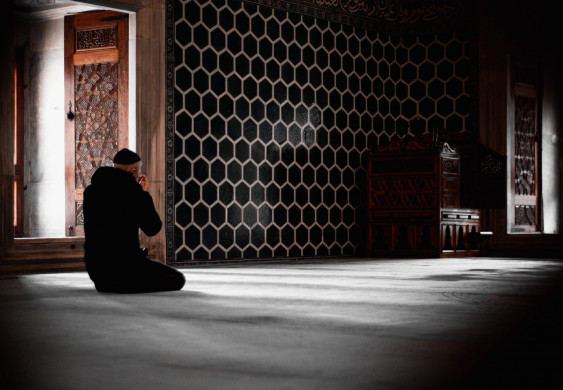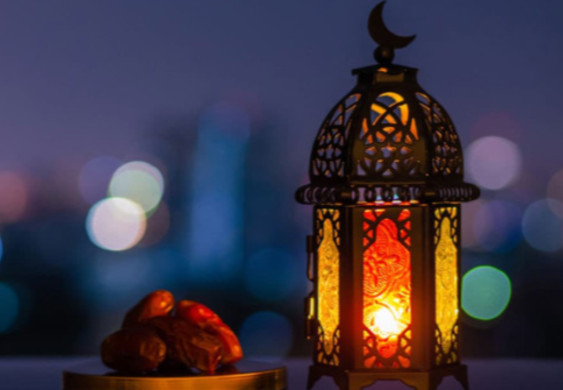Questions and answers about I'tikaf
What is I'tikaf, what is the difference between nafl and emphasized I'tikaf, can men also sit I'tikaf at home, how do women perform I'tikaf, what happens if a woman has sex with her husband while sitting I'tikaf - questions and answers about I'tikaf.
Question : what kind of action is itikaf?
Answer : It is a muakkadah (emphasised sunnah) for the people of every mosque to sit for I'tikaf during the last ten days of Ramadan.
An example of I'tikaf is to attend the taraweh prayer with the congregation. If someone participates in it, others will be held responsible.
Question : What is the minimum amount of Nafl I'tikaf?
Answer : the minimum of Nafl I'tikaf is to sit in the mosque for a while, whether at night or during the day.
In the eyes of Imam Muhammad, may God bless him and grant him peace, the least amount of I'tikaf is a little bit of night and day. It was also narrated from Abu Hanifa, may Allah bless him and grant him peace.
Question : How many days of I'tikaf is necessary to perform the mentioned Sunnah?
Answer : Sitting in I'tikaf during the last ten days is an emphasized Sunnah. And sitting for a day or two is nafl.
Question : When does one enter the I'tikaf?
Answer : a person who wants to perform I'tikaf enters the mosque before sunset and intends to perform I'tikaf.
Question : Is it permissible to perform I'tikaf in a month other than Ramadan?
Answer : Of course, it is possible to perform Nafl I'tikaf or Nazr I'tikaf in a month other than Ramadan. But it is obligatory to fast both for Nazr I'tikaf and for Nafl I'tikaf (at least one day at a time). It is also obligatory to fast while performing the qaza of I'tikaf.
Question : How do women perform Itikaf?
Answer : a woman designates a place in her house for praying and sits in itikaf. With this, he gets the reward of the one who is sitting in the public mosque. They can go out only for their natural needs, but not in other cases.
Question : Is it permissible to sit for Itikaf in a mosque where Friday prayers are not offered?
Answer : yes. And to perform the Friday prayer, he can go to the mosque where the Friday prayer is performed. A person who is sitting in I'tikaf leaves for the mosque he wants to go to for Friday prayer after sunrise, and if he is close enough to not be late for the sermon and Friday prayer, then he leaves after sunrise. If the mosque he is going to is located at a distance where he stays late, he does not wait for the sun to deviate from its position. But before the second adhan, he should set out with the amount of time he can recite four rak'ahs of Sunnah. In the mosque, after the fard (according to those who say that the post-fard sunnah is four rak'ahs), four or six rak'ahs (according to those who say that the post-fard sunnah is six rak'ahs) may remain.
Question : In what situations can a person who is sitting in I'tikaf leave the mosque?
Answer : It is not allowed to go out of the mosque except for the natural needs of a person, such as taking care of someone who is sitting in I'tikaf, taking ablution, taking a ghusl if possible (it is not possible to take a ghusl in the mosque), and for shar'i reasons such as Eid prayers and the call to prayer. As mentioned above, even if he goes out for a short period of time without natural and Shariah excuses, his faith is violated.
Question : What is the ruling on leaving the mosque after forgetting I'tikaf?
Answer : the belief is violated. Even if he forgets and goes out for a short period of time without excuse, I'tikaf is corrupt.
Question : Is it permissible for a person sitting in I'tikaf to go out of the mosque for ghusl in order to cool down?
Answer : it is not allowed. But it is permissible to perform ghusl when performing ablution for prayer.
Question : Is the punishment of broken I'tikaf obligatory?
Answer : if he violates obligatory I'tikaf, his Qaza is also obligatory while fasting. He will perform his punishment in months other than Ramadan. In the Hanafi school, fasting is one of the conditions of I'tikaf.
Question : Can men sit at home for I'tikaf too?
Answer : one of the conditions of I'tikaf is to be in a public mosque where the prayer is performed with the adhan and iqama. From this point of view, it is not permissible for men to sit at home in Itikaf.
Question : When do you enter and leave the mosque to sit for the mentioned Sunnah Itikaf?
Answer : he enters the mosque before sunset on the night of the 20th Taraweeh and leaves after sunset on the last day of Ramadan.
Question : What is the ruling of a person who vows to sit in itikaaf for several days?
Answer : As many days as he intends to sit, it is obligatory for him to sit in I'tikaf, to fast, and to sit during the day as well as at night.
Question : What happens if a woman has intercourse with her husband while sitting in Itikaf?
Answer : the belief is violated. If he has intercourse at night or during the day, consciously or unconsciously, regardless of whether or not he has menstruated, the I'tikaf will be broken. After all, the night is the time of I'tikaf sitting. This is not the case with fasting.
Question : Can a person who is sitting in I'tikaf defecate in the mosque because his stomach is at rest?
Answer : It is forbidden to defecate inside the mosque. If a person in I'tikaf wants to defecate because his stomach is resting, he goes outside and defecates, and this does not harm his I'tikaf. After all, just as people are offended by defecating in the mosque, angels are also offended.
Question : What should a woman do if she sees menstrual blood during the last ten days of menstruation?
Answer : it comes out of Itikaf. After that, he will spend one day fasting. It is better if he spends the remaining days as well. In the state of I'tikaf, the I'tikaf of a menstruating woman is violated.
Question : Is it permissible for a person who is sitting in I'tikaf, which is a sunnah, to go to the mosque for Friday prayer or to take ablution to cool down?
Answer : It is not permissible to go to the ablution room located on the territory of the mosque to perform the Friday prayer or to cool down without being in the house.
From the book "The Shield of the Believer".















